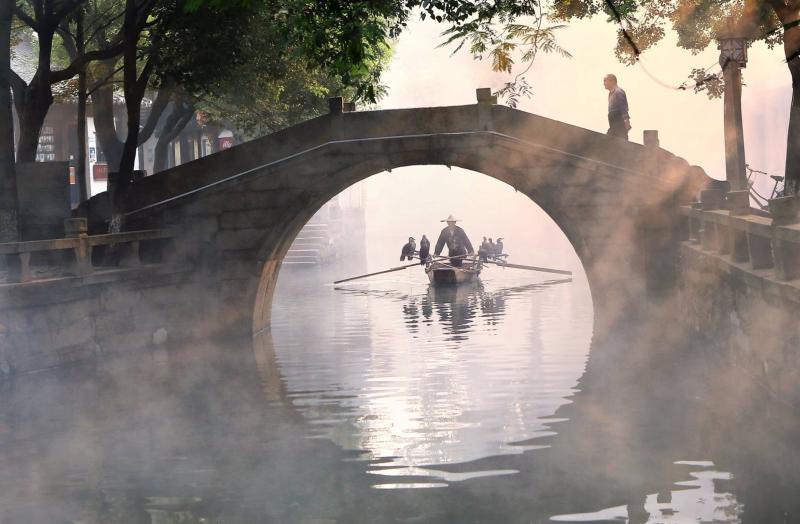The ancient city of Suzhou (west of Shanghai in China) recently celebrated its rich tea culture by inviting its social media followers on a journey through the sprawling tea fields that produce Biluochun, one of China’s most prized teas.
The art of producing Biluochun has been recognized as an Intangible Cultural Heritage on a national level, and on Wednesday, April 21, 2021 social media users were invited to tune in to @VisitSuzhou on Instagram, Facebook and Twitter for an insider’s look at the Suzhou Dongshan Wunong Biluochun Tea Cooperative, where more than 250 farmers oversee the tea’s production.
A local English-speaking guide escorted viewers through the cooperative, guided by renowned tea expert and educator Junjun Chen. A corresponding sweepstakes was available online and gave participants the chance to enter to win a sample of Biluochun tea and a $500 American Express gift card that could be used toward a future trip to Suzhou.
“Green Snail Spring”
Biluochun is grown only in the mountains of Dongting on the shores of Lake Tai, where cool, misty conditions provide the ideal conditions for growing this high-quality tea. Biluochun – which translates directly to “green snail spring” and dates back to the Qing Dynasty – is renowned for its five outstanding characteristics: a unique coiled shape, fruity fragrance, floral aroma, white feathery appearance and early harvest.
The floral aroma of Biluochun is produced in part by the apricot, plum and peach trees that are planted in between tea bushes. Its short, early harvest season takes place from mid-March through April. Biluochun is hand-harvested, and only the highest quality leaves are selected, which accounts for its exclusivity.
The recent online and social activities were a part of “Suzhou, The City of Culture & Arts,” an integrated marketing campaign designed to bring the destination’s fascinating cultural heritage to life for English-speaking travelers in North America and Europe. Exclusive campaign content explored some of the most fascinating aspects of Suzhou, and can be accessed using the hashtag #SecretsOfSuzhou. Travelers who have visited the destination were encouraged to share their Suzhou travel tips using the same hashtag for the chance to be featured.
RELATED: Liyang Tea Festival 2021 Kicks off in Southeast China
Suzhou: Beyond Tea
For more than 2,500 years, Suzhou has been known as a center of arts and culture. Intellectuals, artists and high profile public figures have long been drawn to the city’s romantic canals and stunning classical gardens, nine of which have been designated a UNESCO World Heritage Site. Performing arts including the Kunqu Opera and Pingtan storytelling originated in Suzhou, and the city is also important to the design and fashion worlds as a center for silk making and embroidery.

In addition to its arts and culture, Suzhou is home to plentiful natural areas that allow for boundless outdoor activities. Visitors seeking Suzhou’s modern side will find five-star hotels, the iconic Lake Jinji, limitless shopping, and China’s largest overwater Ferris Wheel in the upscale and contemporary SIP District. Each year, millions of tourists travel to Suzhou to experience the destination’s more than 400 attractions, ranging from pagodas and temples to historical districts and world-class museums.
Suzhou is located in the center of the Yangtze River Delta, approximately 60 miles west of Shanghai. The city is also easily accessible via direct air service from North America and Europe to Shanghai Pudong International Airport.
For more information on Suzhou, visit TravelToSuzhou.com or search #SecretsOfSuzhou on social media.
